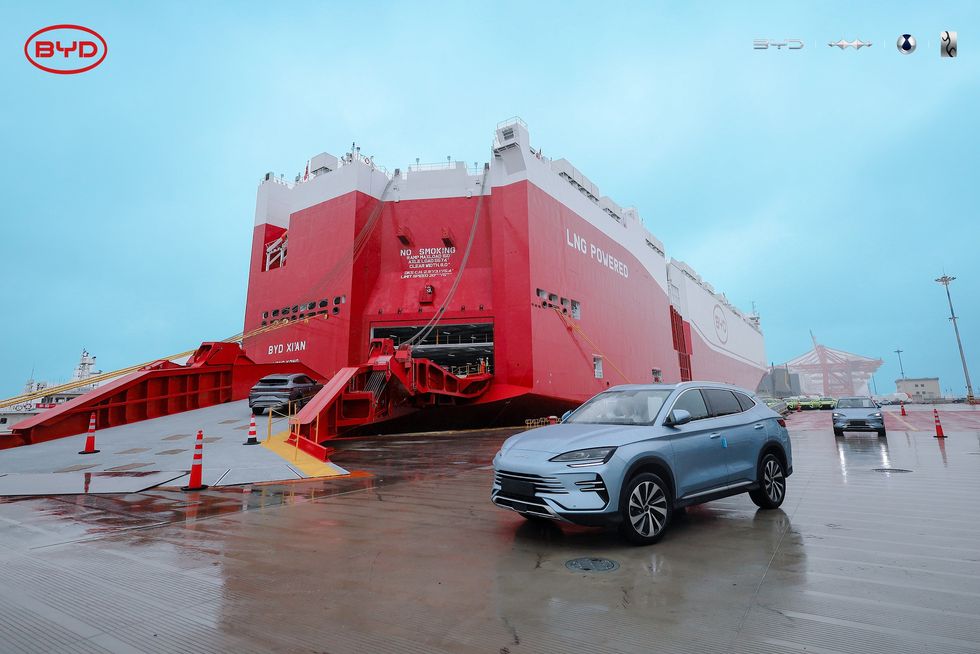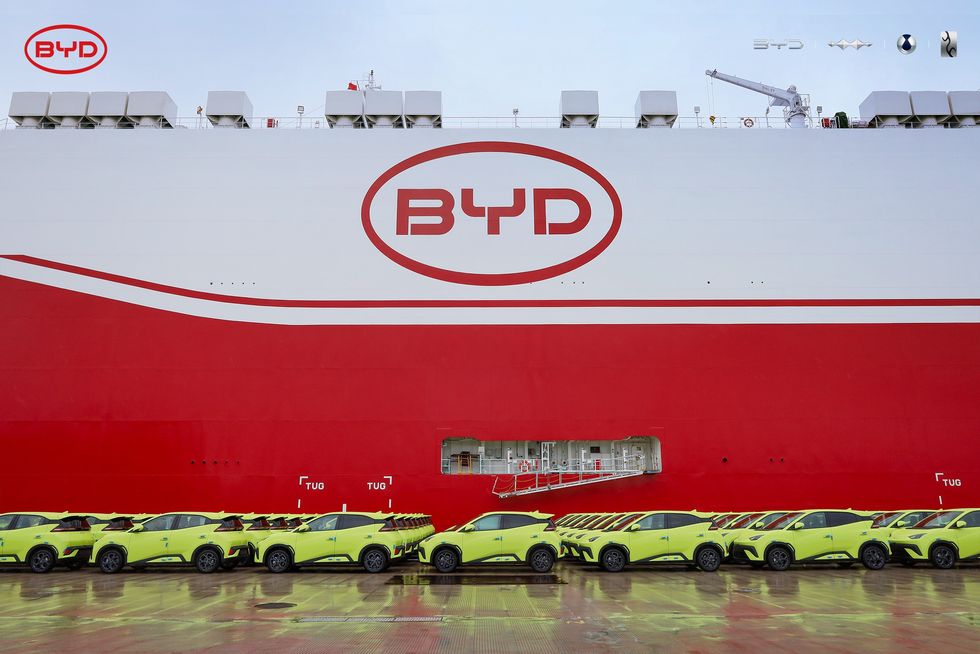Chinese car brands 'winning' against European rivals as BYD and others see 'massive growth'

BYD, Jaecoo and Omoda have quickly become some of the most popular brands in the UK
Don't Miss
Most Read
Chinese car brands are becoming more popular among drivers globally as Western automakers struggle to compete, according to one of the world's largest shipping companies.
Manufacturers from China have already made a huge splash in the new auto market with affordable and technologically advanced electric cars.
Even in the UK, Chinese car producers have dominated, with the likes of BYD, Jaecoo and Omoda all selling tens of thousands of vehicles, despite launching in the last few years.
Now, the chief executive of Wallenius Wilhelmsen, one of the world's biggest operators of vehicle shipping logistics, is looking to help Chinese brands further their global development.
TRENDING
Stories
Videos
Your Say
Speaking to the Financial Times, Lasse Kristoffersen said the company had seen "massive growth" in shipments from China to Latin America and Europe as drivers opt for Chinese brands.
Data shows how Chinese exports of vehicles soared by 23 per cent last year, to 6.4 million cars, with AlixPartners expecting Chinese brands to seal 30 per cent of the global market by the end of the decade.
"The reason why Chinese are winning market shares is because they innovate themselves. The Chinese producers have gone from being cost leaders to now being technology leaders," Mr Kristoffersen said.
BYD, China's biggest manufacturer of "new energy vehicles", has sold more than 39,000 vehicles in the UK this year, representing a massive 547 per cent year-on-year sales growth.
READ MORE: Chinese car brand BYD to land massive ship with 7,000 electric vehicles on UK shores

Chinese brands, including BYD, have made a massive splash in the UK market
| BYDIn a bid to expand its UK footprint, it recently announced that the new Seal 6 DM-i Saloon and Touring models will launch soon from £33,990 and £34,990, respectively.
Similarly, Jaecoo has sold 21,021 new cars, while its sister brand Omoda has registered 16,325 vehicles. They have an impressive combined market share of more than two per cent.
Jaecoo's flagship 7 model has quickly become one of the most popular in the UK, with it ranking in seventh for new vehicles in October.
Despite launching less than a year ago, Jaecoo has quickly gained a foothold in the plug-in hybrid market, alongside a constantly expanding dealer network.
LATEST DEVELOPMENTS
- Rachel Reeves set to slap drivers with 'double tax' in Budget ahead of major pay-per-mile decision
- Major brands recall 1.75 million cars as drivers urged to 'park away from structures' over serious fire risks
- Revolutionary electric car charging breakthrough could see EVs power homes for two days - 'Remarkable!'
Mr Kristoffersen added that European brands were "challenged in both their home market and in their east and west overseas markets", although he noted that steps were being taken to address this.
As it continues its rapid expansion, BYD has used large container ships to export vehicles worldwide, including to the UK.
Its Xi'an vehicle carrier shipping vessel recently completed a world tour in which 7,000 new energy vehicles were shipped to the UK, Italy, Spain and Belgium.
Several other Chinese brands have announced UK expansion plans in recent months, including Xpeng, Chery and Geely.

The BYD Xi'an ship is capable of carrying 7,000 'new energy vehicles' to Europe
| BYDGeely is no stranger to the UK, with the Hangzhou-based brand controlling Lotus, Polestar, Smart and taxi giant LEVC.
Despite the Government investing heavily in electric vehicles, as seen with the £650million Electric Car Grant, it is unlikely that any Chinese brands will benefit from the incentive.
Speaking at the time of the Grant's launch earlier this year, Transport Minister Lilian Greenwood said it would be counter-productive to offer large discounts to brands that continue to use fossil fuels.
She highlighted that many Chinese factories producing electric vehicles were powered by coal and other fossil fuels, going against the UK Government's environmental targets.











